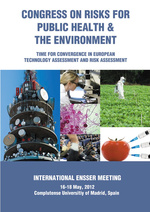Pesticides in Europe and Latin America
Dans cet entretien, Larissa Bombardi propose une analyse comparative de l’usage des pesticides en Europe et en Amérique latine, en soulignant les substances les plus courantes et leurs fonctions. Elle examine les impacts observés sur la santé humaine et sur les écosystèmes, ainsi que les multiples voies par lesquelles ces produits reviennent vers les populations … Read more

